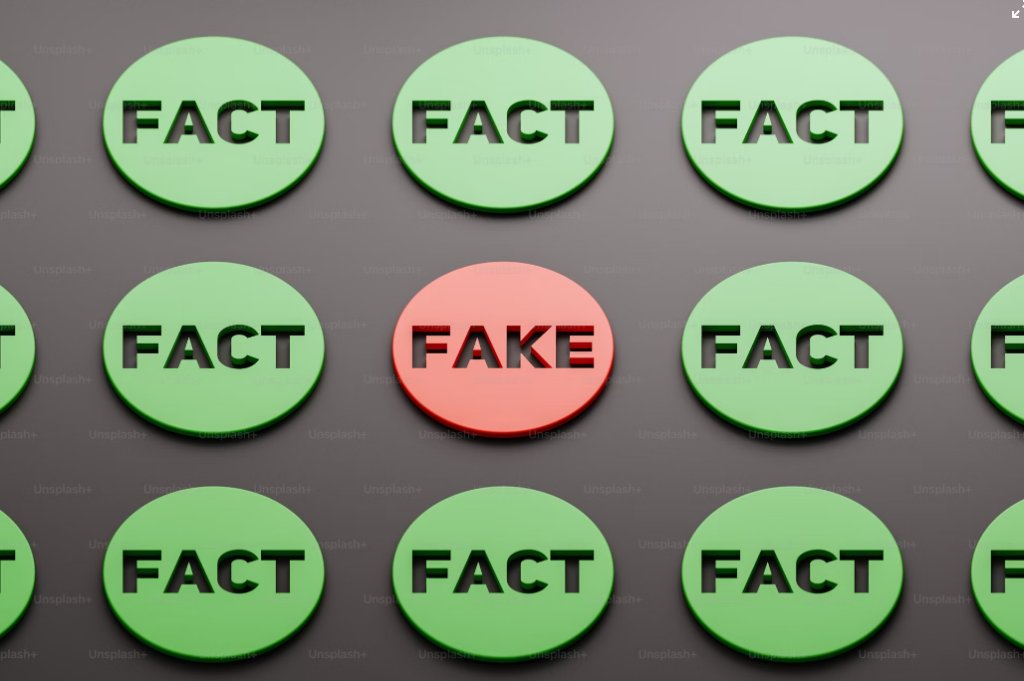
The Misinformation Dilemma: Separating Fact from Fear
Misinformation is often blamed for many of today’s most pressing social and political issues. From election interference to vaccine hesitancy, alarmist narratives claim that false information is flooding the internet, shaping public opinion, and altering behaviors. But is misinformation really as rampant and influential as we’ve been led to believe? According to a growing body of research, the answer is more nuanced than the headlines suggest.
Six Misconceptions About Misinformation
Recent studies highlight several common misconceptions about misinformation, particularly its prevalence, spread, and impact on public behavior. Let’s break them down:
1. Misinformation is Just a Social Media Problem
Social media often takes the blame for spreading misinformation, but research suggests that this focus is driven by methodological convenience rather than actual prevalence. Traditional media, including television and radio, remain major sources of misinformation, yet they receive far less scrutiny.
2. The Internet is Overrun with False Information
While viral misinformation stories capture attention, they represent only a tiny fraction of online content. Studies show that news consumption itself makes up a small percentage of people’s online activity, and misinformation within that is even smaller. The internet is primarily filled with entertainment, social interactions, and commercial content—not fake news.
3. Falsehoods Spread Faster Than the Truth
One widely cited study claimed that false news spreads more rapidly than accurate information. However, subsequent research challenges this idea, demonstrating that the spread of information—true or false—depends heavily on context, framing, and audience engagement. Selective definitions and sampling biases can distort perceptions of how misinformation circulates.
4. People Believe Everything They See Online
Engagement with misinformation does not equate to belief. People interact with content for various reasons—curiosity, humor, outrage—without necessarily accepting it as true. Studies also show that people are often skeptical of what they encounter online and use a range of strategies to verify information.
5. Most People Are Misinformed
Survey-based studies frequently overestimate the prevalence of misinformed individuals. Poorly designed surveys encourage guessing and “expressive responding,” where participants provide answers that align with their political or social identity rather than their actual beliefs. When surveyed properly, far fewer people hold strong misbeliefs than media reports suggest.
6. Misinformation Has a Strong Influence on Behavior
While misinformation can reinforce existing beliefs, there is little evidence that it dramatically changes minds or behaviors. Political misinformation, for example, tends to “preach to the choir” rather than convert skeptics. Furthermore, people’s actions are influenced by multiple factors beyond the information they consume, such as social networks, economic circumstances, and institutional trust.
Reframing the Conversation on Misinformation
The focus on misinformation as a primary social ill risks diverting attention from deeper structural issues, such as declining trust in institutions and media fragmentation. Instead of solely trying to combat misinformation, researchers suggest prioritizing efforts to improve access to high-quality, trustworthy information.
What’s Next?
To truly address concerns about misinformation, future research should:
- Move beyond simplistic categories like “true” vs. “false” to examine how information is framed and interpreted.
- Expand studies beyond social media to include misinformation in traditional media and offline networks.
- Investigate the role of audience skepticism and verification behaviors in shaping belief systems.
- Shift the focus from misinformation consumption to broader trends in information avoidance and distrust.
Join the Conversation
How do you verify the accuracy of information you come across online? Do you think misinformation is as big of a problem as it is made out to be? Share your thoughts and experiences in the comments or on social media. Let’s keep the discussion going!
Be a Changemaker – Join Us Today!
Stay ahead of the latest public health developments. Subscribe for free now to receive weekly updates that empower you to lead and create impact.
💡 Every moment counts! Share this blog and invite others to take action for a healthier tomorrow.



